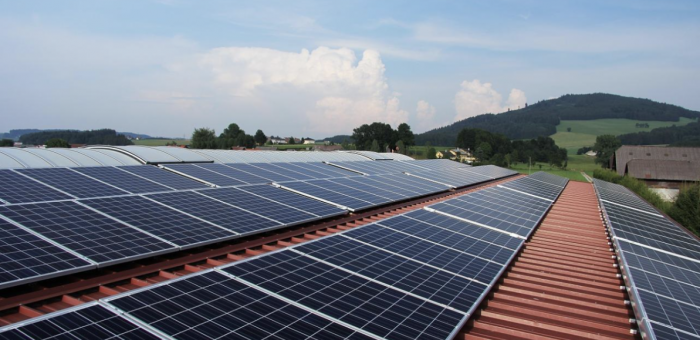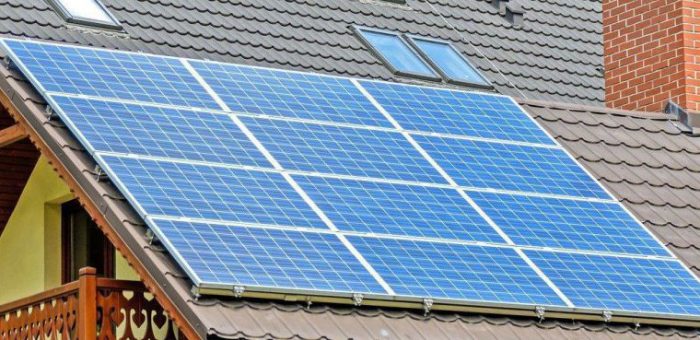Are you the type of person who is budget-conscious, likes predictable billing amounts, and wants to manage your monthly electricity usage better? Average billing may be a good choice for you. In this article, we cover what average billing for electricity is, how it works, its benefits and disadvantages, and how to decide if it’s right for you.
No one should ever have to overpay for power. At Power Wizard, we help customers by helping them make better decisions when choosing an electricity plan so you’re not at all paying more for electricity. Want to learn more? Get started here.
What Is Average Billing?
Average billing is a type of billing that involves a fixed monthly payment for your electricity bills. So, you’re not paying more during high-usage months and less during low-usage months. Instead, you’re evening out your annual electricity payments throughout the year with an average monthly payment.
With average billing, you always know what you will be paying every month. This makes it easier to plan your budget. So, you’re not scrambling to pay for sudden spikes in your bills because of weather extremes.
Average billing is also sometimes called budget billing, average monthly billing, or balanced billing. Each Retail Electricity Provider will setup Average Billing differently. We will discuss a common method, so ask your provider on how their average billing is setup.
How Does Average Billing Work?
Retail Electricity Providers (REPs) apply a simple formula to determine how much you’ll pay monthly. They add up your monthly electric bills for 12 months or for however long this information is available to get your average monthly electrical usage in kilowatt-hours or kWh.
The total is then divided by the number of months. If this information is only available for six months, for example, the total gets divided by six. The number that’s left in kWh is then multiplied by your current electricity rate in cents to get your average monthly bill.
Even if your bill stays steady throughout the year, your actual usage is going to vary. Sometimes, you’ll use more and sometimes less. Your REP will keep track of your actual charges. The difference is recorded in what’s known as your deferred balance.
Your deferred balance is the difference between your average billing amount and the amount you’d pay if you didn’t sign up for average billing. Your REP will usually add or subtract 1/12th of the deferred balance from the next month’s bill, depending on whether you’ve used more or less electricity.
At the end of the contract, your REP will credit the remaining balance to your account or request you to pay any deficits.
The Benefits of Average Billing Payment Arrangements
Average billing has two main benefits:
1. Motivates You to Focus on Energy Usage Habits
When you have consistent electricity bills every month and you’re living on a fixed income, average billing can motivate you to become more conscious about your energy costs. You’ll find yourself wanting to stay within the electricity budget that you’ve set each month. In that sense, average billing can help you develop good energy conservation habits.
2. Provides Consistent Electricity Costs for Some
A huge benefit of average billing is consistent electricity costs. You don’t have to worry about using air conditioning wisely to balance a sudden hot week causing your bills to spike. The hit to your budget can leave you scrambling to balance your finances.
[ctafirst]
With average billing, you always know what you’re going to be paying every month, and you can plan accordingly. So, you can allocate a fixed amount each month for your electricity bills.
Disadvantages of Average Billing Program
While average billing has benefits, it also has some disadvantages.
1. Potential for Deferred Balance
Even though average billing makes your monthly bills predictable, it can also set you up for a huge deferred balance if you’re not careful. So, if your usage is high, you can end up having to pay a big sum at the end of the year. If you’re trying to save on your energy costs, you also won’t know till the end of the year how well you actually did.
It can be easy to become complacent with average billing. Each time you choose to keep the lights on or run the air conditioning for longer, you’re risking an increased deferred balance on the electric bill.
2. Extreme Weather
The weather in Texas can be very unpredictable. That’s one of the reasons why average billing may not be right for everyone. If you’re not a conscious energy user, you may end up paying steep bills because of sudden temperature extremes. So, if it gets too cold, you’ll be using more of your heater and racking up higher costs.
3. Month-to-Month Holdover Rate
Holdover rates can add a lot to your charges if you’re not careful. These are charges that REPs add when your current plan expires, and you don’t select a new plan on time. The rates are often set up to be higher than your previous rates. Your monthly bills will then become significantly higher.
When Is Average Billing Worth It?
The most important aspect to remember about average billing is that while it’s a way to manage your payments effectively, it isn’t going to save you any money. You’ll still need to pay the difference to your REP if your usage is higher. The amount will be in addition to any adjustments they’ve already made to your billing.
Average billing may be a good option if you’re on a fixed income that you’re managing tightly, want more predictability with your electricity costs, and are a wise energy user. That means regardless of weather extremes, you’re careful about how much electricity you use.
[ctafirst]
If you want to avoid financial stress altogether, you can even think about using autopay. So, your bills get paid automatically and in full every month.
Discuss Your Options With Your Electricity Provider
If you’re unsure about your options and need a helping hand with deciding the ideal electricity plan for your needs you can connect with the electricity provider directly to understand the available plans.
If you want to research more about your options, you’ll find the following resources useful:
- What You Should Know About Fixed Rate Electricity Plans
- Is a Prepaid Electricity Plan a Good Option for You?
- What’s the Difference Between Fixed-Rate and Wholesale Electricity?
You can also check an energy comparison site like Power Wizard. With our one-stop shop and helpful resources, we make it easy for you to find the right electricity plan.
More From the Power Wizard Blog
-
Affordable Electric Bill: Power Wizard’s Promise of Protection
Sarah, a proud Texan, knows that everything is bigger in Texas – including the choices when it comes to electricity providers. She’s no stranger to the complexities of deregulated energy markets. With a bustling household, she juggles work, family, and keeping the lights on. But there’s one thing Sarah doesn’t want to juggle: her electric bill. […]
View Article -
How to Cancel Your Electricity Contract with Your Provider
There are many advantages to changing your electrical service, including finding a better price, switching to a company with better customer service, and finding a distributor with a green appeal. It’s easiest to end your service when a contract ends, but sometimes it makes sense to switch early. For instance, you may find that you’re […]
View Article -
How to clean your solar panels
Click on a section to skip directly to it: Why is it important to clean your solar panels?Solar panel cleaning: a step-by-step breakdownMake sure you’re saving the most on your monthly energy bill Have you considered installing a renewable energy source at your home? Power Wizard recommends trying solar energy, which accounts for 3% of […]
View Article -
Incentive-Based Energy Plans: What Are Your Options?
Incentive-based energy plans are becoming critically important as war, sanctions, and declining fossil fuel production cause nonrenewable energy prices to skyrocket. Fortunately, private companies are busy developing energy-efficient technologies while all levels of government are offering substantial financial incentives for consumers to adopt renewable energy sources. Let’s examine the many federal, Texas, and local energy […]
View Article -
How Long Do Solar Panels Last?
Owning a home is expensive, and that’s not expected to change anytime soon. On top of everything else, the cost of energy can be a burden for many familiar and even more so when temperatures reach extreme highs and lows. Whether you’re well-off or living paycheck to paycheck, you’re probably interested in lowering your energy […]
View Article -
How Time of Use Energy Plans Work
Once, one company controlled all aspects of your electricity. Whether you liked it or not, you had to agree with the charges of that company and pay the bills. Those days are over, as you can now choose an electricity provider within a deregulated market and pick the best rates for yourself. You even have […]
View Article -
How to Set Up Electricity in an Apartment
Click on a section to skip directly to it: 7 Steps to Help You Set Up Electricity When Moving to a New Apartment BuildingHow Long Does it Take to Set Up Electricity When You Move?Avoid a High Monthly Cost by Choosing the Best Energy Plan Moving to a new apartment can be equal parts exciting […]
View Article -
How to Understand Your Texas Power Bill
When your Texas power bill arrives, what do you do? Many people only look at the amount due and pay it without a second thought (unless they notice that the total is significantly higher than the month before). Understanding your electricity bill and the charges on your bill can save you from overpaying for electricity. Don’t […]
View Article












